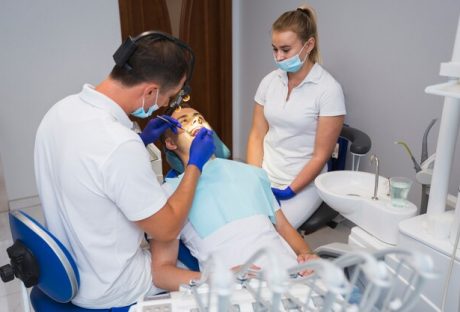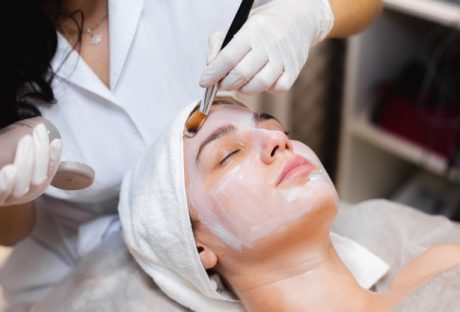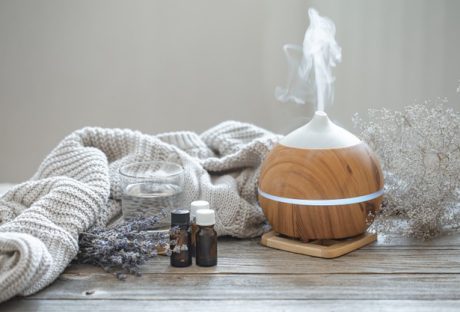Rush poppers have long held a place in popular culture, often surrounded by curiosity, misinterpretation, and a hint of intrigue. These small bottles, typically found in adult novelty stores, online or on rump-pump.de, promise their users a brief rush of euphoria. Over the decades, rush poppers have seen varied responses from the public, leading to numerous myths and misconceptions. Understanding its chemistry and effects on the body is crucial, as with any substance. This article delves into the science behind rush poppers, breaking down what every user—and potential user—should know about their composition and impact.
What are Rush Poppers?
Rush poppers, often referred to as ‘poppers,’ have a history dating back to the late 19th century. Initially introduced as a treatment for angina, their medicinal use dwindled with the advent of more advanced cardiac medications. However, their recreational popularity surged during the 1970s and 1980s, particularly within the gay community.
Most commonly, rush poppers are found in small liquid-filled bottles under various brand names, with “Rush” being one of the most recognized. When inhaled, these volatile liquids produce a short-lived, euphoric ‘rush,’ contributing to their enduring allure. The primary ingredient in these formulations is alkyl nitrites. While they were once primarily amyl nitrites, the composition has shifted over the years, with isobutyl nitrite now being more prevalent in today’s market.
Their legal status varies globally, with some countries allowing their sale as ‘room odorizers’ or ‘leather cleaners’ to bypass health regulations. Nonetheless, the cultural footprint of rush poppers remains significant, prompting occasional and regular users to delve deeper into their chemistry and effects.
The Chemistry Behind the Rush
The potent effects of rush poppers can be attributed to their chief chemical constituents: alkyl nitrites. Alkyl nitrites, whether amyl, butyl, or isobutyl, are volatile organic compounds that, when inhaled, rapidly enter the bloodstream. Their fundamental action revolves around the relaxation of smooth muscles found throughout the body, including the walls of blood vessels.
When an individual inhales the fumes from rush poppers, the alkyl nitrites lead to vasodilation or the widening of blood vessels. This sudden expansion causes a rapid decrease in blood pressure, resulting in the characteristic ‘head-rush’ sensation. The brain experiences a brief influx of oxygen, producing euphoria and lightheadedness. This effect is often accompanied by sensations of warmth, dizziness, and an increased heart rate.
But what’s the chemistry making this happen? Alkyl nitrites function as a source of nitric oxide, a signaling molecule in the body. Nitric oxide’s release prompts the relaxation of vascular smooth muscles, creating the vasodilatory effect.
While the experience may be exhilarating for some, it directly results from a chemical interaction with the body’s physiological systems. The fleeting nature of rush poppers’ effects, which usually last just a few minutes, is due to the rapid metabolism and elimination of alkyl nitrites from the system.
How Do Rush Poppers Work in the Body?
To fully grasp the rush and allure of poppers, one must delve into their interaction with our physiological systems. Upon inhalation, the vapors from rush poppers are rapidly absorbed by the lungs into the bloodstream. Once in the blood, alkyl nitrites exert their primary effect: relaxing smooth muscles. This is not limited to vascular muscles but extends to other body areas, which explains some of the sensations users report.
The immediate dilation of blood vessels causes a swift drop in blood pressure, inducing a feeling of lightheadedness. This ‘head rush’ is, in essence, a surge of oxygenated blood to the brain, accompanied by a warm sensation, potential facial flushing, and an accelerated heart rate.
Additionally, the relaxing effect of rush poppers on other smooth muscles can lead to enhanced sensations, particularly during intimate activities, which contributes significantly to their recreational appeal.
While the sensations might be described as intense by users, they’re typically short-lived, often waning within a few minutes. This transient nature results from the body’s efficient processing and elimination of the inhaled alkyl nitrites.
The Risks and Safety Concerns
Like any substance that has a profound effect on the body, rush poppers come with their set of risks and safety concerns. While many users report minimal adverse effects when used sporadically and responsibly, potential dangers can emerge with misuse.
One immediate concern with rush poppers is the potential for a sharp drop in blood pressure. The additive effect can lead to fainting, dizziness, or even more severe cardiovascular issues for individuals already on medications or with conditions that lower blood pressure.
Moreover, alkyl nitrites can produce harmful effects when combined with other substances. For instance, when used alongside erectile dysfunction medications like Viagra or Cialis, there’s a heightened risk of a dangerous drop in blood pressure.
There’s also the concern of chemical burns. Given the volatile nature of the liquid, if it comes in direct contact with the skin, it can cause irritation or burns. Plus, ingestion or swallowing can lead to severe poisoning and requires immediate medical attention.
On the legal front, the sale and possession of rush poppers vary by jurisdiction. In some regions, selling them for human consumption is prohibited, leading vendors to market them as ‘room deodorizers’ or ‘cleaning agents’. This guise, however, does not reduce the risks associated with their misuse.
While rush poppers might promise a fleeting euphoria, users should approach with informed caution, understanding the potential ramifications on their health.
Common Misconceptions and Myths
The allure and mystique surrounding rush poppers have created many myths and misconceptions. One common fallacy is that poppers are entirely harmless, a belief stemming from their short-lived effects. While they might not lead to long-term dependency like other substances, their misuse can pose significant health risks, as previously discussed.
Another myth is that they’re aphrodisiacs. While rush poppers can heighten sensations and relax muscles, attributing aphrodisiac properties to them is misleading. Their physiological effects might enhance intimate experiences but don’t inherently increase sexual desire.
Being armed with facts over fiction is essential when considering or using poppers.
Conclusion
The world of rush poppers, veiled in intrigue, promises a brief, euphoric escape. Yet, understanding their chemistry, physiological impact, and associated risks is paramount. By being informed, users can make safer decisions, ensuring their experiences with poppers are enjoyable and without undue harm.
Read Also:
- How To Make Doing Yoga At Home Interesting
- 11 Effective Ways To Improve Testosterone Levels In Your Body
- What Is Garcinia Cambogia And How It Can Help Your Health?
- What Are Virtual Reality Workouts And How Will They Affect Exercise?























